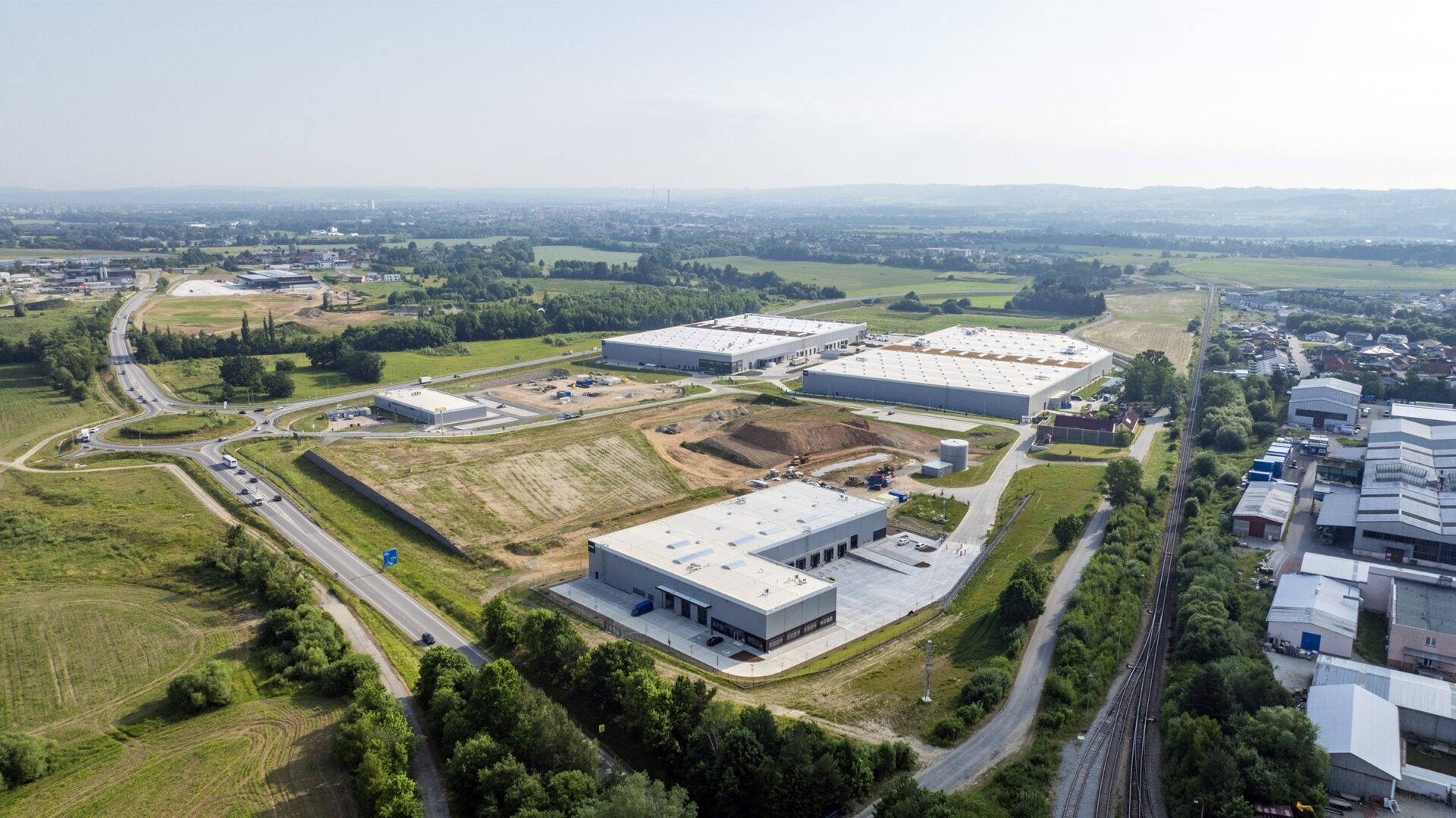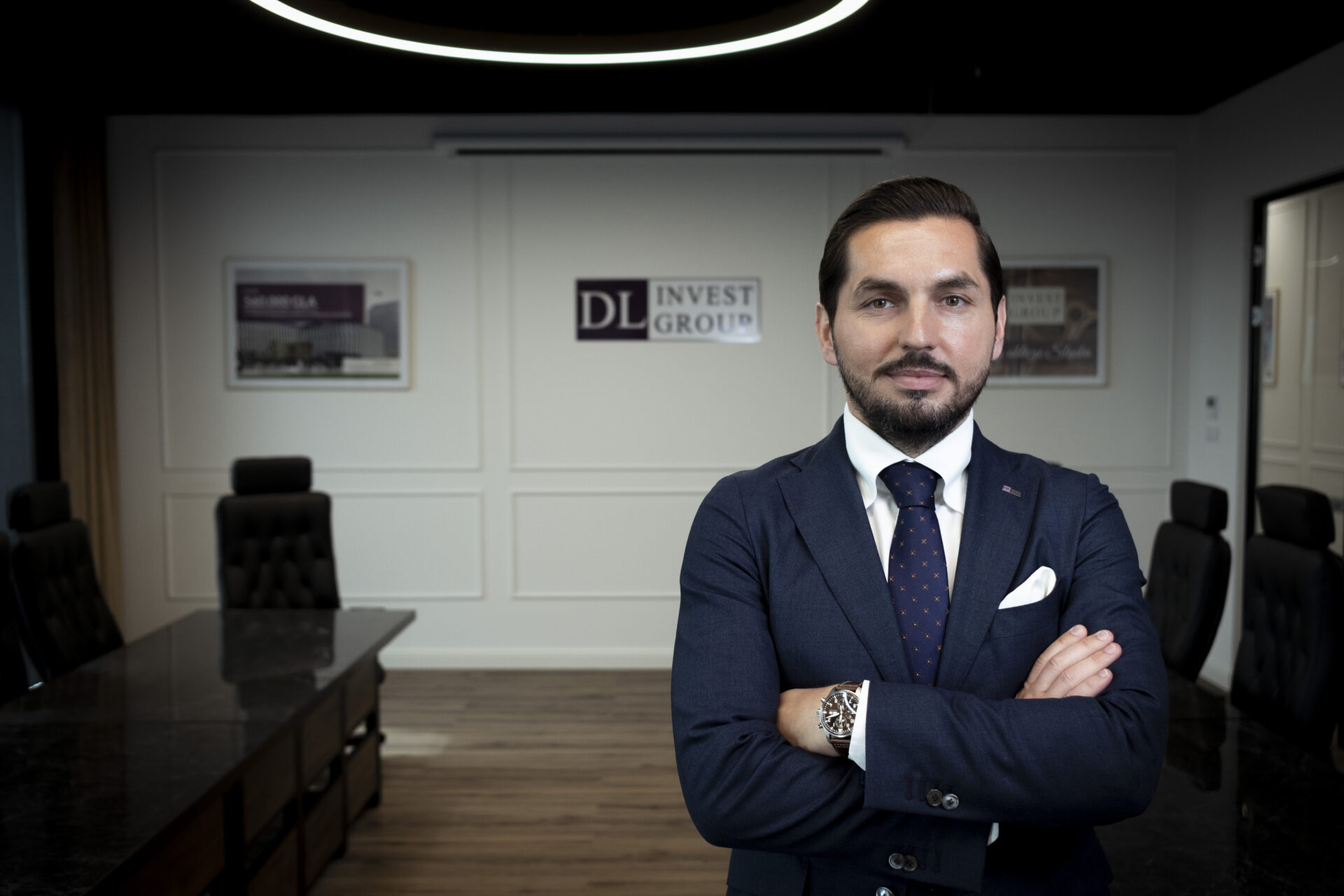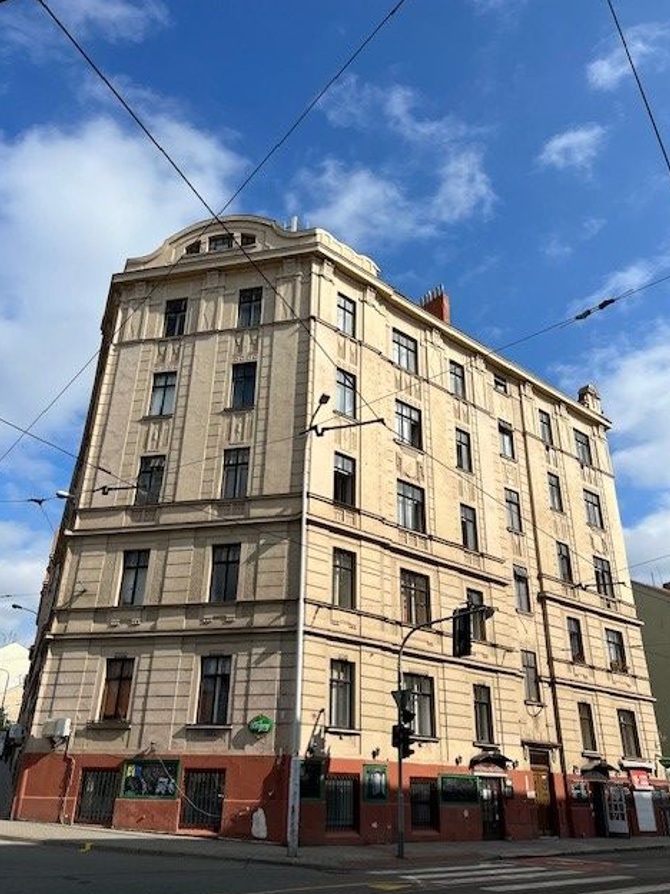The Flow project has launched in the New Centre of Łódź. The project developed by Archicom will occupy a 2 ha site between the Łódź Fabryczna railway station and the EC1 scientific and cultural complex. Ultimately, it will offer over 1,200 flats. Five buildings will be constructed as part of the project. The Flow area will be open to the city and landscaped with greenery. PIG Architekci is responsible for the project. The development is scheduled to be completed by the end of 2028.
The Flow project is the next stage in the development of the New Centre of Łódź, the largest investment of its kind in Central Europe, combining business, commerce, culture and transport. Flow will complement the existing urban fabric of the New Centre of Łódź as it will be built between the most important buildings: Brama Miasta, the Łódź Fabryczna Railway Station, the EC1 complex and the planned Kobro Square.
“The Flow project will be implemented by Archicom, known for developing modern residential and commercial complexes throughout Poland. In Łódź, it is revitalising the Fuzja post-industrial area in the vicinity of the Geyer-Scheibler water and factory facilities. Construction in this area is the next stage in developing the post-railway grounds and the former EC1 coal depo in the New Centre of Łódź. It is the last major private investment planned for Zone I in the New Centre of Łódź. With the Łódź metro, the residents of Flow will quickly reach the most important locations in Łódź. Thanks to investors such as Archicom, the neighbourhood of the Łódź Fabryczna railway station makes the city an interesting alternative to living in the capital. Last but not least, I would like to emphasise the exemplary cooperation between the City and the Investor, for which I extend my thanks and I look forward to further investments in our city,” said Hanna Zdanowska, Mayor of Łódź.
The project will be carried out in stages, with completion scheduled by the end of 2028. The New Centre of Łódź will span five buildings with a total of 1,250 flats. The ground floor spaces will accommodate restaurants, cafés and service outlets. A distinctive feature of the project will be its ubiquitous greenery with places for rest, relaxation and art initiatives.
“Flow will give life to the concept of a 15-minute city, where residents have access to all they need within a 15-minute walk from their homes. The project encourages people to live and work here, where they can shop comfortably and spend their free time surrounded by nature, meet their close ones in their favourite restaurants, and attend cultural and entertainment events. The investment’s unique location will provide its residents with easy access to other parts of Łódź, as well as Poland and Europe. Flow will be a place combining all the elements of Łódź: life in a big city, nature, culture and technology,” said Waldemar Olbryk, President of Archicom. “The Flow project will be closely linked with the city. We want it to be a space that is alive and contributes to the well-being of the residents, all the people of Łódź and visitors,” added Mr Olbryk.
The Flow area will be closed to vehicular traffic with access to the underground car park from the underground road along Has Street. There will be charging stations for electric vehicles in the garage. The complex will be open to the city, and pedestrian and cyclist-friendly. Pedestrian and bicycle routes will connect the north-south and east-west axes: the Łódź Fabryczna railway station and the adjacent Bronisław Sałaciński Square with the EC1 complex and the Strzemiński Square with the planned Kobro Square.
The architecture of the Flow buildings will be modern and simple while drawing on what is characteristic of Łódź by hinting at its tenement houses and post-industrial buildings. Architectural elements of the first stage of the investment, which will be located closest to the Łódź Fabryczna station, will take the railway infrastructure as a reference. A characteristic element of the building’s podium will be a steel arcade whose form mirrors architectural solutions found in old railway infrastructure buildings. The façade of the building will be finished with a cladding of flexible clinker, corrugated and smooth plaster in various shades.
Greenery will play an important role in the project. Flow will feature a woonerf with taller plants and trees in the central area and lush façade gardens of varying heights, including grasses, shrubs and lower trees. Greenery will separate the residential buildings from streets and traffic. A pocket park will be created near the planned Kobro Square, including an outdoor gym, a playground, benches and gazebos for meetings and cultural events. Well-selected vegetation will allow rainwater retention and temperature regulation, keeping the space quiet.
“Flow will be the green quarter in this part of the city in contrast to the paved adjacent public spaces. It will encourage people to stop and take a moment to relax. We want the greenery to serve the residents, commuters waiting for trains, employees of the surrounding offices and all citizens of Łódź. This is why the arrangement of plants in Flow is irregular and organic, and the selected species will be diverse enough to provide an interesting and pleasing space,” said Michał Lah of PIG Architekci.
The first and second phases of the project, scheduled to be completed as early as 2025, will provide 186 and 314 residential units respectively. A further three buildings are currently in the design phase. Multiple recreational and leisure areas will be available for residents, with places for meetings and cultural events integrated into the internal courtyards. Flow’s tenants and visitors will have access to a coworking space in one of the buildings. The buildings will be equipped with bicycle storage spaces, storage rooms and a Residents’ Club. For the comfort of the residents, the Blue Bolt system will be implemented in Flow, enabling contactless opening of doors, garage doors and the lift.
The investor of the Flow project is Archicom, which belongs to the Echo Investment Group. The PIG Architekci studio is responsible for the architectural project.







